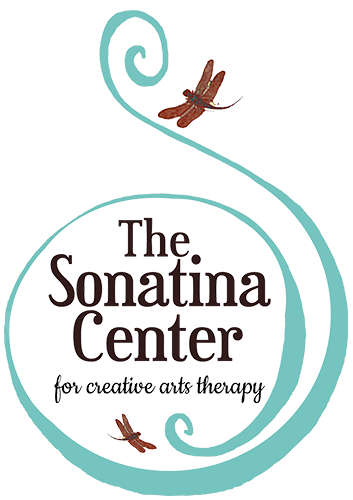Mental Health Counseling or Creative Arts Therapy–Which One Is Right For Me?
Getting Started
So, you decided you would like to try therapy. You began a few rudimentary google searches and quickly realized the options are at best confusing and, at worst, so overwhelming you decided to shut the computer and hold off on the whole therapy thing for another month (or year). By the time you’ve found this blog post, you may be past the initial shock of realizing every provider has about 10 letters after their name and thinking I don’t know what any of these letters stand for! Deep breath.
Let’s tackle just a few of those letters and then get into the differences between Mental Health Counseling and Creative Arts Therapy. In the state of New Hampshire, LCMHC stands for Licensed Clinical Mental Health Counselor. If a counselor has received their Master’s degree in Counseling and has gained authorization to work in the state while accruing hours towards their full license, they are a CMHC. Other states use slightly different names. For example, Massachusetts uses LMHC. Maine uses LPC and LPCP. Board-Certified Music Therapists (MT-BC) can be Bachelors or Masters level. Their Master’s degrees can either be a Master of Arts (MA) or Master of Music (MM). Dance/Movement Therapists are all Masters level and can be Registered Dance/Movement Therapists (R-D/MT) or Board Certified Dance/Movement Therapists (BC-D/MT). Creative Arts Therapy is a convenient term to encompass many types of therapy that place emphasis on creative expression including: Music Therapy, Dance/Movement Therapy, Drama Therapy, Expressive Arts Therapy, and Art Therapy.
Here’s the good news. All of this means that the world of therapy is highly regulated to make sure the providers you see are highly trained and qualified. In fact, the reason we even have to address the difference between Mental Health Counseling and Creative Arts Therapy comes down to how these professionals are organized and regulated. Around the late 20th century, several regulatory bodies emerged to systematize the extensive array of therapeutic interventions that were being implemented, to make sure practices were effective and practitioners were ethical. The American Dance Therapy Association formed in 1966. The American Mental Health Counselors Association formed in 1976. Multiple Music Therapy Associations formed and then merged into The American Music Therapy Association in 1998. Because these organizations do the work of vetting therapists, you can focus on investigating which type of therapy is best for you.
A quick note: the words “therapy/therapist” and “counseling/counselor” are generally interchangeable
Similarities Between Mental Health Counseling and Creative Arts Therapy
Both Mental Health Counselors and Creative Arts Therapists support clients’ mental health and wellbeing. Both collaborate with clients to create appropriate therapeutic goals to guide the progression of therapy. Both provide a safe, supportive space for exploration of thoughts and feelings. Both incorporate evidence-based therapeutic interventions to help the client improve mental, emotional, and social functioning.
Differences Between Mental Health Counseling and Creative Arts Therapy
Mental Health Counselors use the Diagnostic and Statistical Manual of Mental Disorders to diagnose the client’s presenting symptoms. They typically draw on practices including Psychoanalysis, Cognitive Behavioral Therapy, Person Centered Therapy, or Gestalt Therapy (just to name a few). They also utilize psychological assessments to corroborate a diagnosis or track progress of symptoms. Another important difference is that Mental Health Counseling focuses on verbal processing, “talk therapy.”
Creative Arts Therapy focuses on creating art through movement, music, or visuals to express thoughts or feelings that may otherwise be hard to articulate with words. The therapist helps guide the client to gain insights into their emotional landscape through their creations. As a result, Creative Arts Therapy may be especially effective for individuals who have difficulty expressing themselves verbally. It can also be a mechanism to access deeper emotions that the client may not be aware of.
Which One is Right For Me?
If you suspect your struggles may be due to a clinical mental disorder like depression, anxiety, trauma, or addiction, seeking support from a Mental Health Counselor may be a better fit for you. If your goals relate more to personal growth, emotional exploration, general well being and flourishing, Creative Arts Therapy may be the right path. However, these are generalizations, and how we function mentally and emotionally is not easily categorized.
Another thing to keep in mind is that sometimes our resistance to trying new things is worth getting curious about. If making art sounds strange and uncomfortable, you may want to ask yourself what beliefs led you to that feeling. Similarly, if being treated for a mental disorder feels overwhelming, it is worth questioning where that feeling is coming from. There is no right or wrong answer. And frankly, you may find either suits you just fine. In fact, research shows the quality of the relationship between therapist and client is much more important than the type of therapy being used. So go ahead and reach out to a therapist if you think you need support and ask them even more questions!
Sources:
https://www.thomfield.com/uploads/7/8/1/8/7818585/2017-cmhc-40yearretrospective.pdf

